Neuroscience

Neurotransmitter receptors function via various G-protein coupled and G-protein independent mechanisms that activate downstream intracellular signaling pathways such as cAMP/PKA, PI3K/AKT, phospholipase A2, and phospholipase C pathways. For instance, dopamine receptors act through adenylate cyclase to activate PKA and other signaling molecules, thereby mediate gene expression through the actions of CREB and other transcription factors. Other neurotransmitters such as NMDAR or AMPAR are associated with ion channels that control flux of Ca2+ and Na+, thus propagating the action potential across the post-synaptic neuron.
Dysfunctions in GABAergic/glutamatergic/serotonergic/dopaminergic pathways result in a broad range of neurological disorders such as chronic pain, neurodegenerative diseases, and insomnia, as well as mental disorders including schizophrenia, bipolar disorder, depression, and addiction.
-
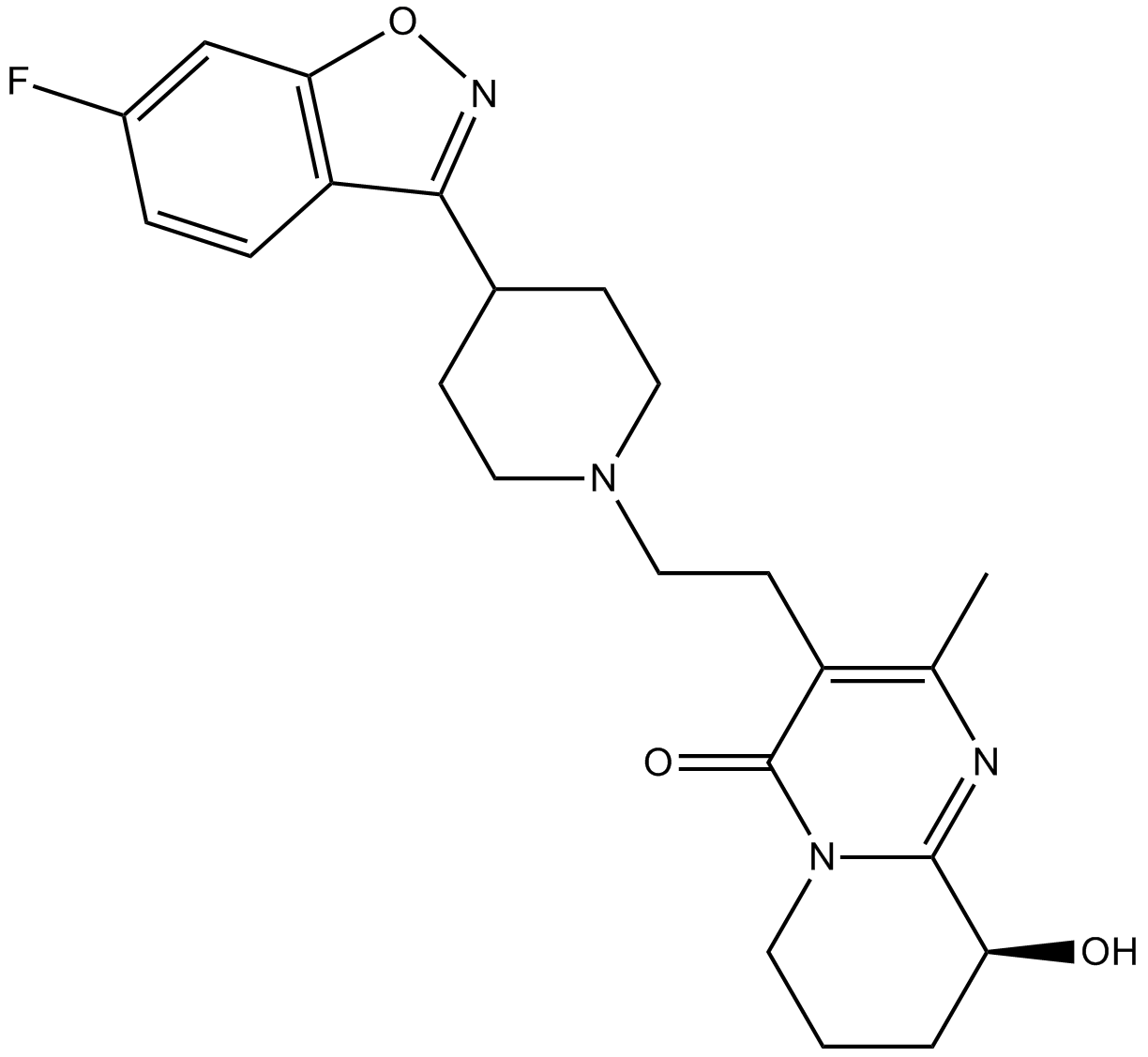 A8496 PaliperidoneTarget: 5-HT2 Receptors|D2 Receptors|D3 Receptors|5-HT1 Receptors|Histamine H1 ReceptorsSummary: Dopamine receptor antagonist
A8496 PaliperidoneTarget: 5-HT2 Receptors|D2 Receptors|D3 Receptors|5-HT1 Receptors|Histamine H1 ReceptorsSummary: Dopamine receptor antagonist -
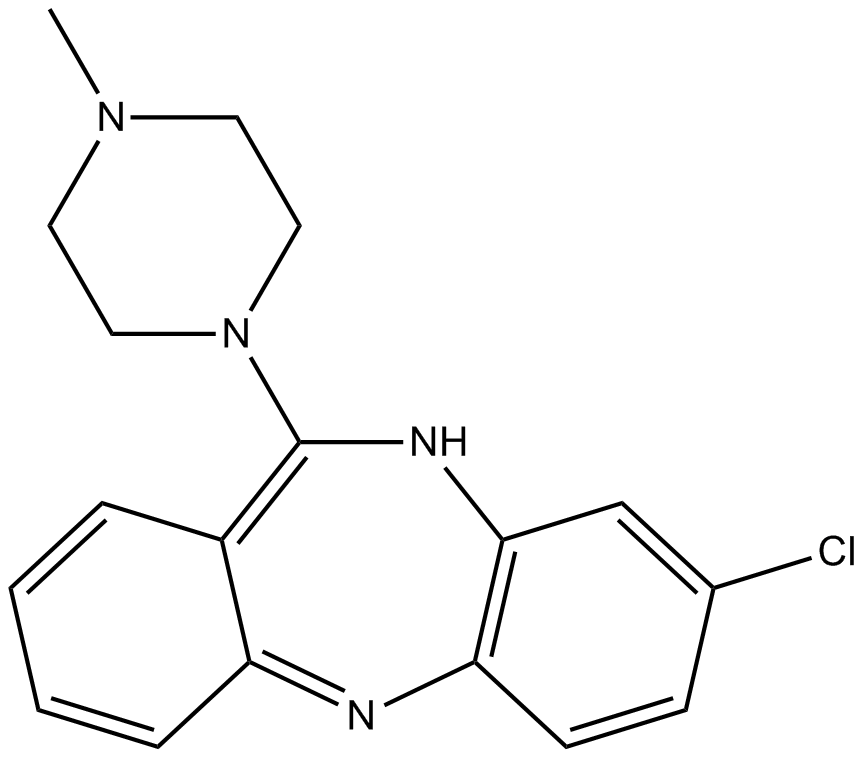 B2235 ClozapineTarget: 5-HT2 Receptors|D1 and D5 Receptors|D2 Receptors|D3 Receptors|5-HT1 Receptors|D4 ReceptorsSummary: 5-HT receptor antagonist
B2235 ClozapineTarget: 5-HT2 Receptors|D1 and D5 Receptors|D2 Receptors|D3 Receptors|5-HT1 Receptors|D4 ReceptorsSummary: 5-HT receptor antagonist -
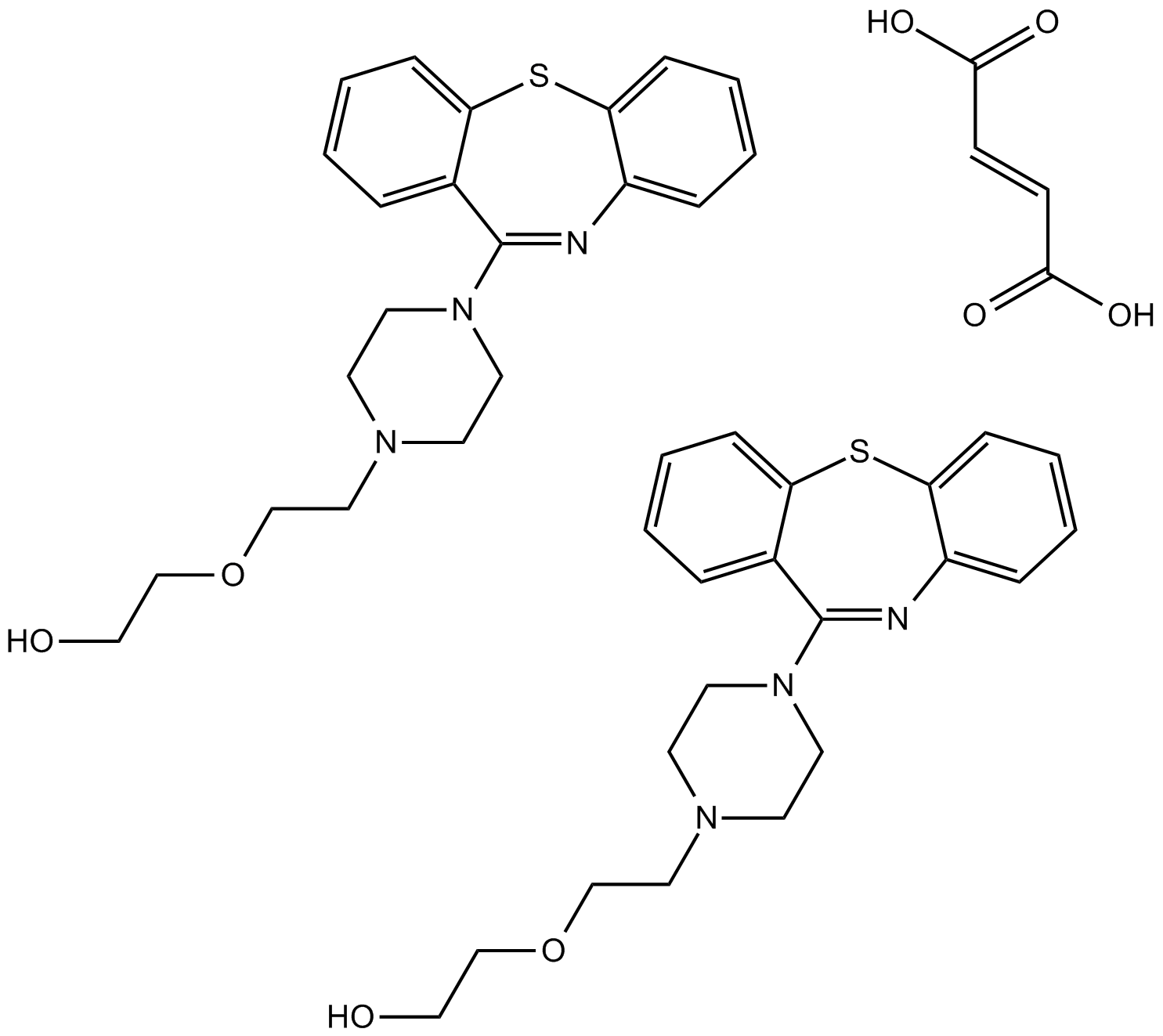 B1490 Quetiapine Fumarate1 CitationTarget: 5-HT2 Receptors|D1 and D5 Receptors|D2 Receptors|D3 Receptors|5-HT1 Receptors|5-HT7 ReceptorsSummary: Dopamine receptor antagonist
B1490 Quetiapine Fumarate1 CitationTarget: 5-HT2 Receptors|D1 and D5 Receptors|D2 Receptors|D3 Receptors|5-HT1 Receptors|5-HT7 ReceptorsSummary: Dopamine receptor antagonist -
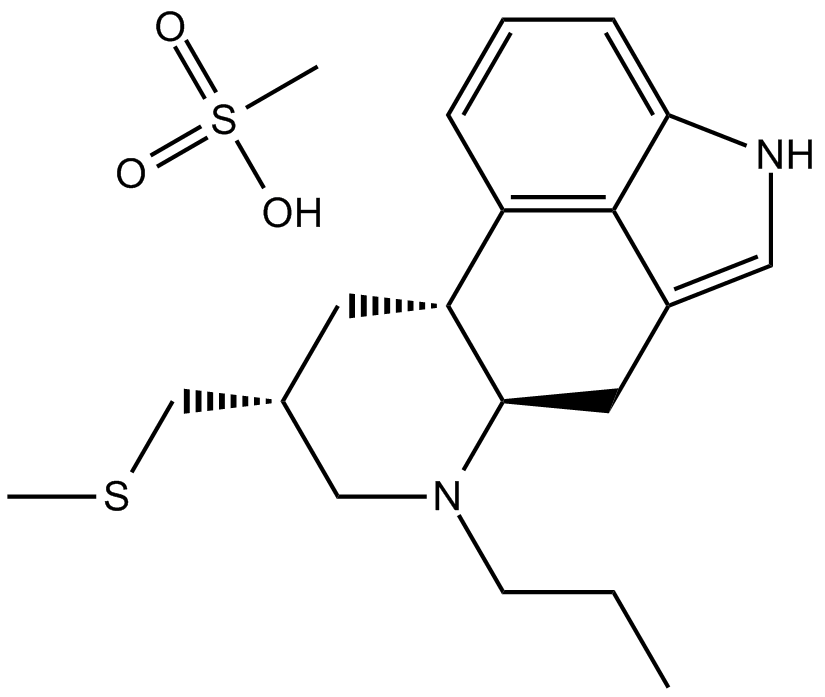 B1485 Pergolide mesylateTarget: D1 and D5 Receptors|D2 ReceptorsSummary: Dopaminergic agonist
B1485 Pergolide mesylateTarget: D1 and D5 Receptors|D2 ReceptorsSummary: Dopaminergic agonist -
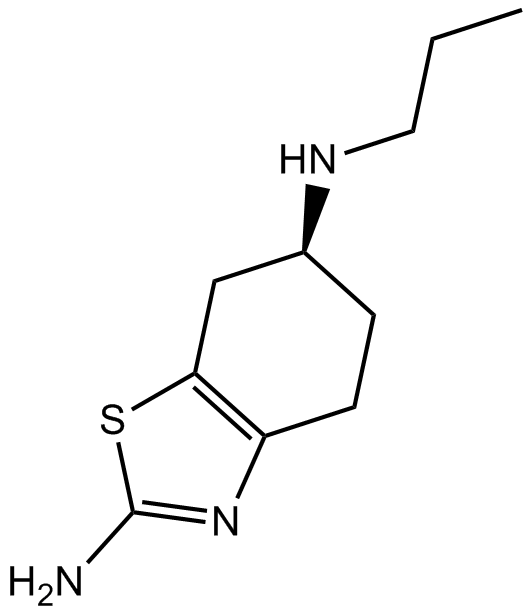 B1488 PramipexoleTarget: D2 Receptors|D3 Receptors|D4 ReceptorsSummary: Dopamine agonist
B1488 PramipexoleTarget: D2 Receptors|D3 Receptors|D4 ReceptorsSummary: Dopamine agonist

